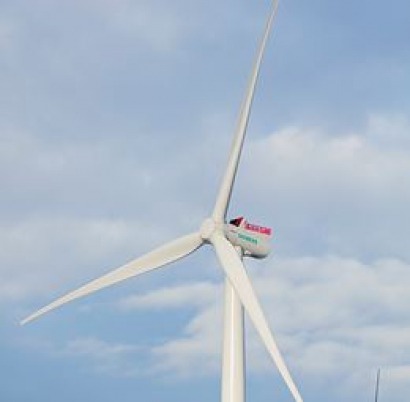
Field testing of the SWT-7.0-154 was recently extended with a second prototype. Grid performance, quality and safety are currently being tested on both machines.
"The development of our SWT-7.0-154 has reached the final stage and we are well on track," said Morten Rasmussen, Head of Technology at Siemens Wind Power and Renewables Division.
"We are proud to see our customers welcoming the upgrade, and ultimately it is our customers who will benefit from these improvements. Serial production will be ramped up in autumn 2017," Rasmussen said.
Obtaining type certification marked the final milestone in the development process, allowing customers to make final investment decisions for offshore projects. Since many of the technological components in this new turbine are the same as those of the proven Siemens SWT-6.0-154 – including the 154-meter rotor – serial production is scheduled to begin in autumn 2017.
While the first prototype, installed in summer 2015, was initially used for achieving the final type certificate, engineers are now able to use both prototypes for accelerated testing of all grid-related aspects such as performance, quality and safety.
As the upgrades in the turbine consist mainly of changes to the permanent magnet generator, the power converter and medium voltage transformer, the startup of both SWT-7.0-154 prototypes ran smoothly.
Whereas the generator’s permanent magnets and segments as well as the transformer upgrades are required solely for the higher output requirement, the upgraded Siemens Integrated Control System with enhanced power converter provides even more flexibility in the turbine response to voltage and frequency, while enabling compliance with the strictest international grid code requirements.
First orders are already in place for the new project including the Walney Extension East project in the UK to be installed in early 2018. Siemens direct drive wind turbines feature a proven and reliable technology with a long term track record.
Over 1,100 of the gearless Siemens wind turbines have been installed since 2010, and more than 60 of them are in operation offshore.
For additional information:

